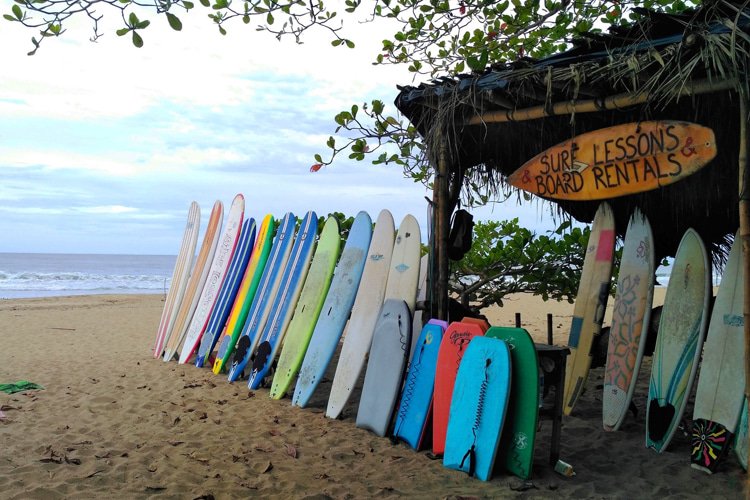Understanding Surf Gentrification: Protecting Local Culture and Community in Costa Rica
Surfing has always been more than a mere sport; it embodies culture, community, and a distinctive way of life intimately tied to the regions we cherish. In destinations like Costa Rica, this vibrant culture faces a growing threat known as surf gentrification. This phenomenon mirrors issues faced in urban areas, where external investments inflate real estate prices, squeeze grocery costs, and ultimately push native communities out.
Understanding surf gentrification reveals how foreign-owned surf camps exploit local environments without contributing to the local economy. These entities often employ instructors from their own countries, neglecting to invest in local talent or pay taxes that support the communities they occupy. This lack of respect for established surfer cultures and local etiquette jeopardizes the livelihoods of those who have nurtured these beaches for generations.
The Ripple Effect of Surf Gentrification
The implications of surf gentrification extend far beyond the ocean. The rising costs of living can render basic needs unaffordable for local families, resulting in the displacement of entire communities. This shift threatens the future of the very individuals who have historically cared for and contributed to the local surf culture and environment. Unfortunately, many tourists remain oblivious to these dynamics; they book their trips online, enjoy their stay, and unknowingly divert their financial support away from local necessities.
To mitigate these impacts, tourism must evolve. It has the potential to become part of the solution, but it requires an awareness and appreciation of the challenges faced by local communities. Foreign surf camps would benefit greatly by embracing collaboration instead of competition. By partnering with local businesses and instructors, they can offer a richer experience that holds value beyond mere surf lessons.
Cooperation Over Competition
Imagine a surf experience in Costa Rica where foreign operators engage with local companies instead of navigating the waves independently. Such partnerships would see local instructors leading clients through authentic experiences, ensuring that they receive expert guidance on surf breaks specific to the area. Furthermore, utilizing local businesses for transportation, meals, and lodging enriches the entire trip while simultaneously supporting the economy.
This cooperative approach not only respects the established culture but enhances tourists’ experiences, allowing them to engage authentically with local life. It turns superficial vacations into meaningful journeys, where visitors are treated to more than just stunning waves—they become part of the community tapestry.
The Benefits of a "Local Filter"
In an ideal scenario, foreign surf operators would engage with a "local filter," meaning they actively work with local schools and businesses to enhance their offerings. Such partnerships create a win-win situation: local communities thrive, retaining their culture, while tourists benefit from a more genuine connection to the area. Surfers travel to Costa Rica not only for optimal waves but also for the vibrant pura vida spirit that epitomizes local life, and this spirit flourishes only when communities are thriving.
As consumers, we hold the power to shape the future of surf destinations. The choices we make about where to spend our money influence community resilience and cultural preservation. By supporting local businesses—whether it’s a surf school, a smoothie shop, or a local tour operator—we contribute to a healthier ecosystem that nurtures both locals and visitors.
Choosing Authenticity: A Call to Action
Visitors to Costa Rica can make a difference simply by making informed choices. This includes booking trips through surf camps that prioritize collaboration with local businesses and instructors. It’s essential for tourists to be aware of the impact their spending can have on communities. Engaging in conversations about sustainable travel and advocating for local solutions can foster awareness and change.
Moreover, sharing these insights with fellow surfers and travelers can amplify the message. By highlighting the importance of responsible tourism, and how it respects both the environment and the local culture, we can collectively create a more supportive ecosystem for everyone involved.
Conclusion
Surf gentrification presents a significant challenge to local communities in Costa Rica, affecting their economic stability and cultural identity. However, through cooperative practices and a focus on community engagement, we can transform this narrative. By choosing to support local businesses and participate in authentic cultural experiences, surfers, and tourists contribute to the preservation of vibrant communities and rich surf cultures.
Catch the sun, surf, and endless adventure — all while staying energized and healthy with Nature Made supplements! Plus, enjoy an exclusive 25% OFF your first order! Don’t miss out—click here to start your journey to wellness now: https://www.anrdoezrs.net/click-101464393-15564446. Dive into health today with Nature Made!





